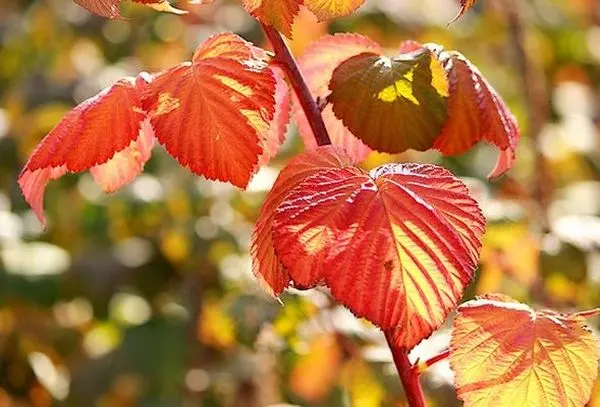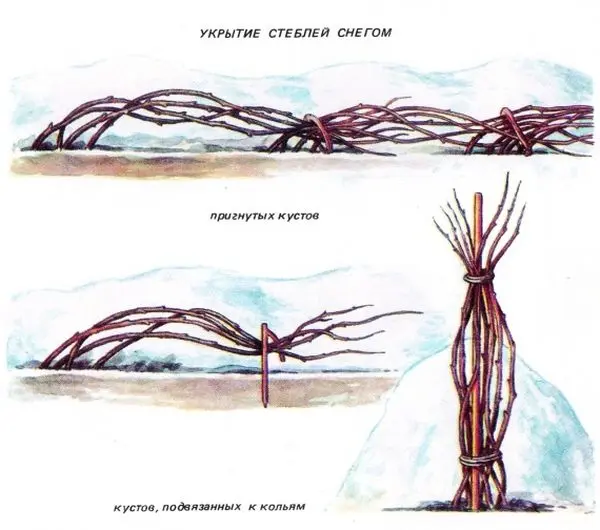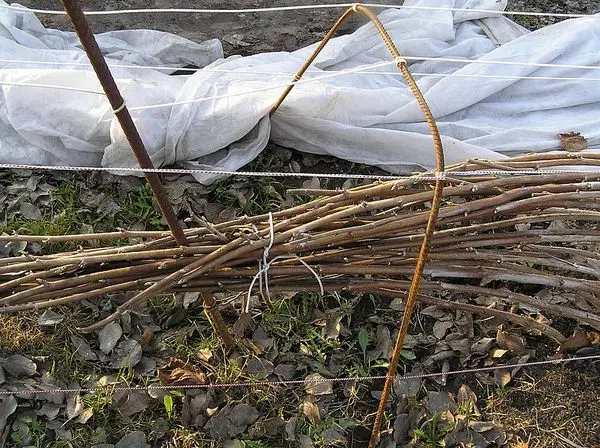Contents
The yield is affected not only by the comprehensive care of raspberries during the growing season. It is also important to pay attention to shrubs at the end of fruiting. In order for the plants to be able to overwinter and not die, care should be taken in advance to create conditions for them. How to prepare raspberries for winter is the topic of our today’s article.
When to start preparing for the cold
The quality of complex care and preparation of a plant for winter affects the volume of berries that a summer resident in the Moscow region will pick next year. A thorough preparation will also help improve the immunity of the plant, making it more resistant to diseases. As a rule, the preparation of berry plantings for the coming frosts begins in the summer months. It is important for summer residents from Khabarovsk and other cities:
- cut stems;
- remove leaves;
- feed shrubs or fertilize;
- do mulching;
- cover the plant.

Despite stereotypes, training should not begin in the fall, but at the end of summer. It is necessary to apply phosphorus and potash fertilizers. The main thing is not to use nitrogen supplements.
Raspberry is a plant that loves fertilized and nutritious soil. In addition to providing the summer resident with a good harvest next season, fertilizers will also improve the condition of the tree’s root system. The last time top dressing should be made in the first days of October.
Video “How to prepare raspberries for winter”
From this video you will learn how to properly prepare raspberries for the winter period.
Trimming pattern
In order for the plants to develop normally in the next season, the gardener needs to leave no more than 4 shoots. If raspberry bushes, for example, the Yellow Wonder, are planted in a row, you need to ensure that there are no more than 10 shoots per 1 m of the plot. Broken, diseased and dried shoots are immediately removed. It is also worth removing those that grow to the sides and interfere with the “neighbors”.
Sometimes gardeners do not cut the shoots to the end. Then there are small “stumps”. Inside, such stems are full, so they are considered potentially dangerous: there is a possibility of accumulation of parasites. In such places, pests can lay their eggs and spend the whole winter. The result is obvious, and, as a rule, not the same as we would like.
To determine which stems to remove, you can do this:
- Damaged and affected places are noticeable by swellings that appear on the trunk of a shrub.
- It is important to pay attention to the length. The gardener needs to shorten the shoots to 80–90 cm. In the spring, they will actively grow again, which means that it will be much easier to cover the bushes before the cold weather. When shortening, it is imperative to leave the top, which plays an important role in the process of photosynthesis.
- Another point that needs attention: the gardener should remove all the leaves. With the onset of cold weather, they can rot, and then the kidney will no longer grow. Of course, no one is talking about picking each leaf individually. Experienced gardeners and summer residents recommend using a soft glove. Squeeze your fingers and run along the stem. The movement must be directed from the bottom up.
Feeding rules
In this case, it is worth adhering to a simple rule: if the soil contains an excessive amount of fertilizer, the resistance of raspberries to frost decreases. Given this, it is necessary to feed the shrubs at a certain time and monitor the amount of fertilizer used. It is also necessary to feed the shrubs of the Tarusa variety, which bring medium-sized berries.
We advise you to pay attention to the following recommendations:
- plants need to be fed 45–50 days before pruning;
- if you use organic top dressing – ash, humus or manure – it must be applied in the second decade of July;
- if nitrogen fertilizers are used, they are applied towards the end of the month.
Shelter methods
If the forecasts say that a cold winter is coming in the Moscow region, you need to prepare a special shelter for the plant. Severe frosts often do not come alone. In the cold winter, a large layer of snow is guaranteed. In these cases, it is better to use non-woven material for insulation. It will allow air to pass through and allow the plant to breathe. It will also eliminate the chance of fading. Next, we will talk about how to cover raspberries for the winter. There are three ways to do this.

under the snow
In the Leningrad Region and the Primorsky Territory, snow is considered a full-fledged insulation that can be used for all plants in the garden and in the country. If you want to protect raspberry bushes from coming frosts, cover them with a 60–80 cm snow layer. To keep snow in line near the raspberry bush, it is recommended to install special shields. As a rule, they are made from dry sunflower or corn stalks, as well as from wood. They are installed in a checkerboard pattern. Having melted, snow, or rather melt water, will bring great benefits to raspberries. In anticipation of spring days, the snow must be compacted and sprinkled with sawdust.
Fencing
As for the fence, experienced gardeners recommend installing it around the perimeter:
- An attractive external fence is an excellent decoration and landscape design element.
- Fencing also limits the growth of shrubs to the sides.
- Fencing is the basis that protects berry bushes from wind and draft.
temporary greenhouse
The method is considered the most expensive. The construction of a temporary greenhouse is a laborious and lengthy process. If the berry bushes are planted on high ground, the gardener is left to use this method of shelter. It is also relevant in cases where the bushes are blown from all sides.
A temporary greenhouse is a frame on which a film is stretched. Another alternative is sheathing with plywood sheets or similar material. If young bushes grow on your site, they can be covered with plywood or wooden boxes.
Rules for preparing remontant varieties for winter
Remontant cultures have their own characteristics. The fact is that they have the ability to produce crops both on summer and green, and on matured two-year-old shoots. We are talking about the variety Hercules, bred in the Bryansk region.
Do you dream of getting the maximum yield? In this case, it is necessary to prepare remontant raspberries for the winter in the same way as ordinary ones. At the same time, it is important to move the deadlines. Berry shrubs of remontant varieties grow and produce crops before the onset of frost. Annual shoots give the maximum and high-quality yield. The same rules apply to the black variety Cumberland.
As soon as the winter cold and frost damage the leaves on the raspberries, it is necessary to cut the wood and leave the stems near the roots.
It will be good if the summer resident covers the roots with mulching material. So they will be preserved by spring. You also need to be careful not to use excessive amounts of mulching material – the roots can rot if the winter is warm and the temperature is high.
Features of shelter in different regions

By themselves, berry bushes do not show particular resistance to frost. For this reason, preparation for the winter cold in different climatic zones is different. Residents of the northern regions – the Urals and Siberia need to carefully prepare for winter. Raspberry stalks must be covered and bent down, otherwise they will freeze. Due to the bending, the bushes are sprinkled with snow. This means that they will be protected from winds and frosts. Variety Gusar is suitable for cultivation throughout the Federation.
Are you planning to get a bountiful harvest of juicy and tasty Giant raspberries? Be sure to pay attention to the time of preparing raspberries for winter in the fall. Carry out all work in a timely and correct manner, protecting shrubs from pests, diseases and freezing.









